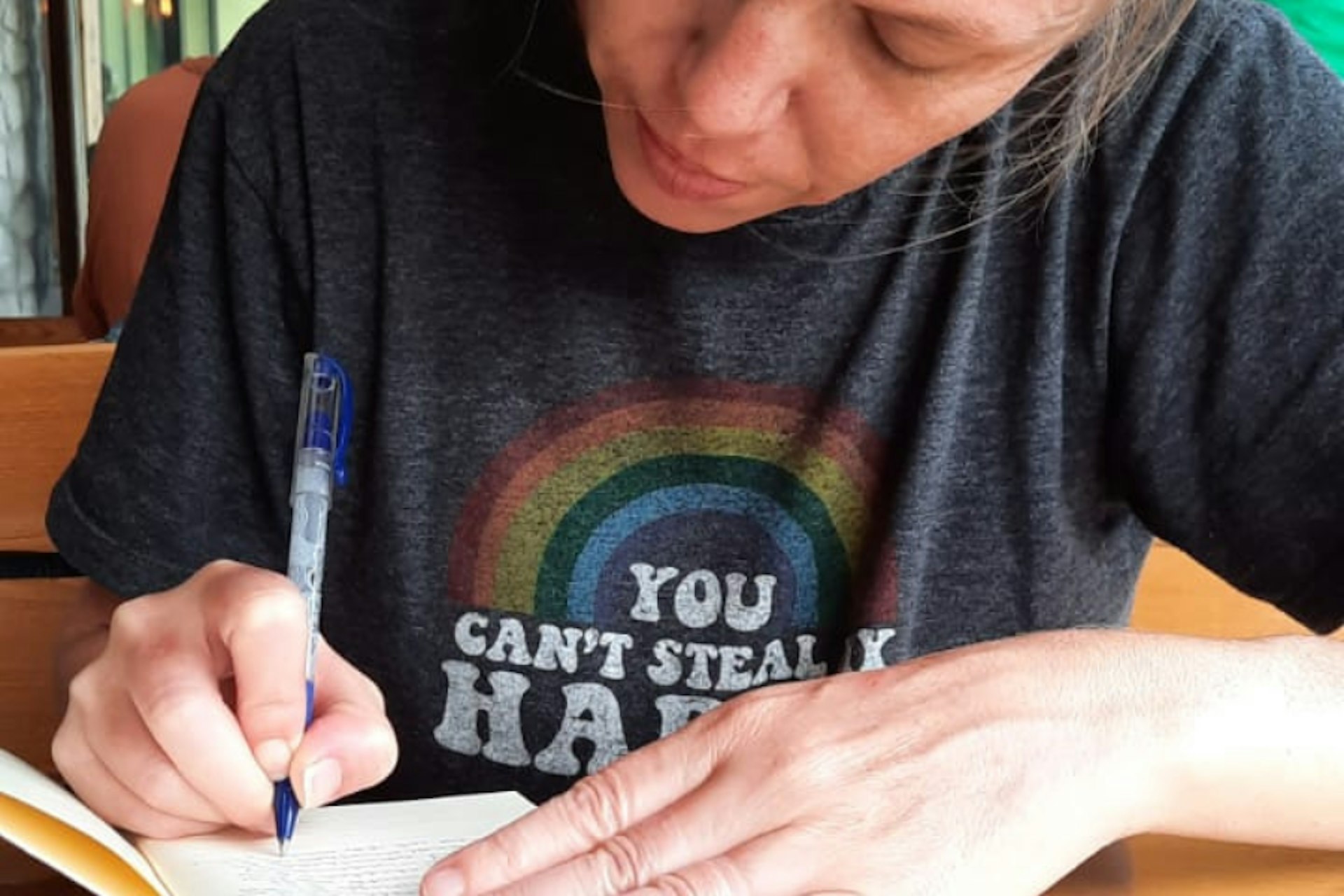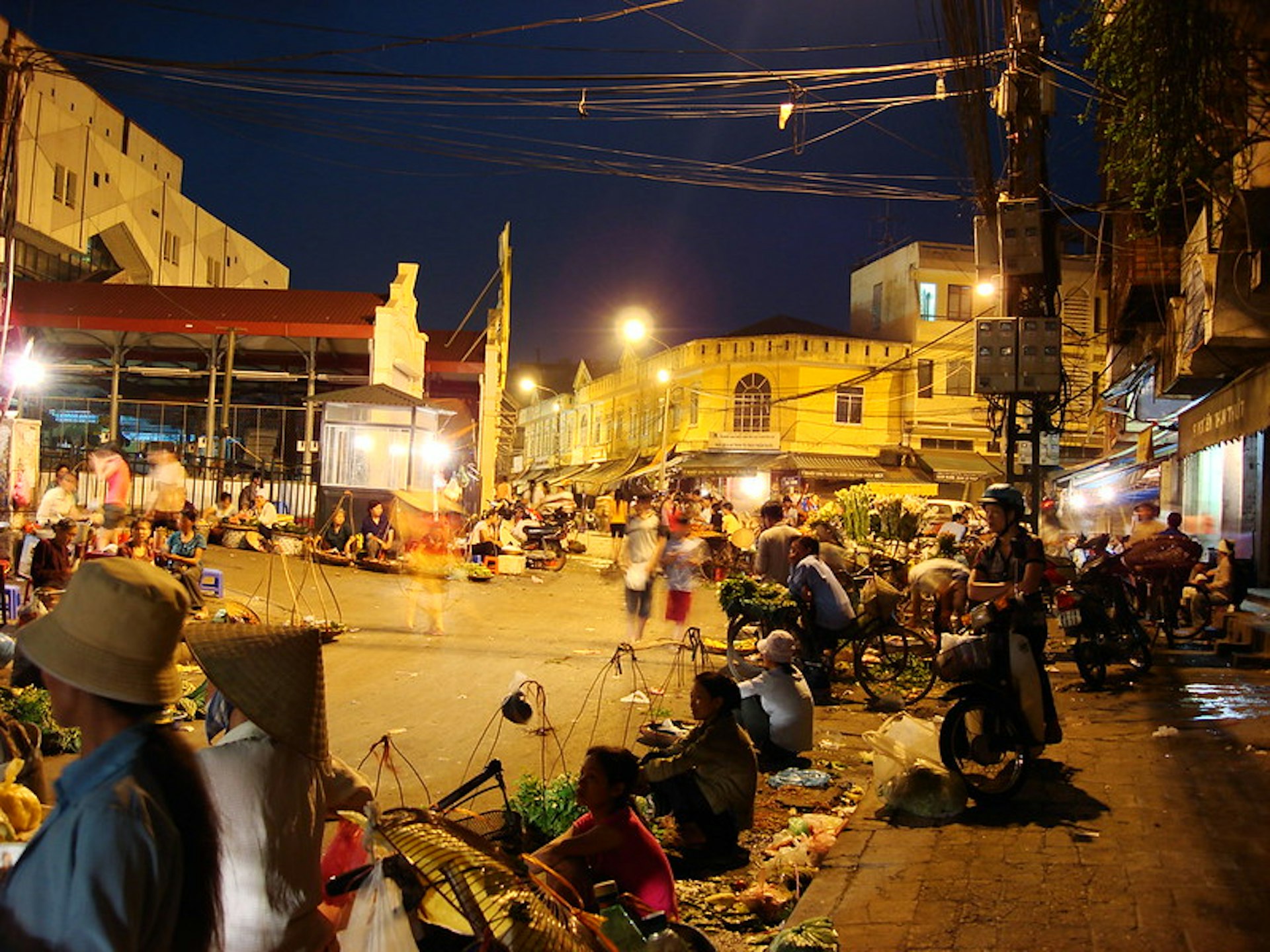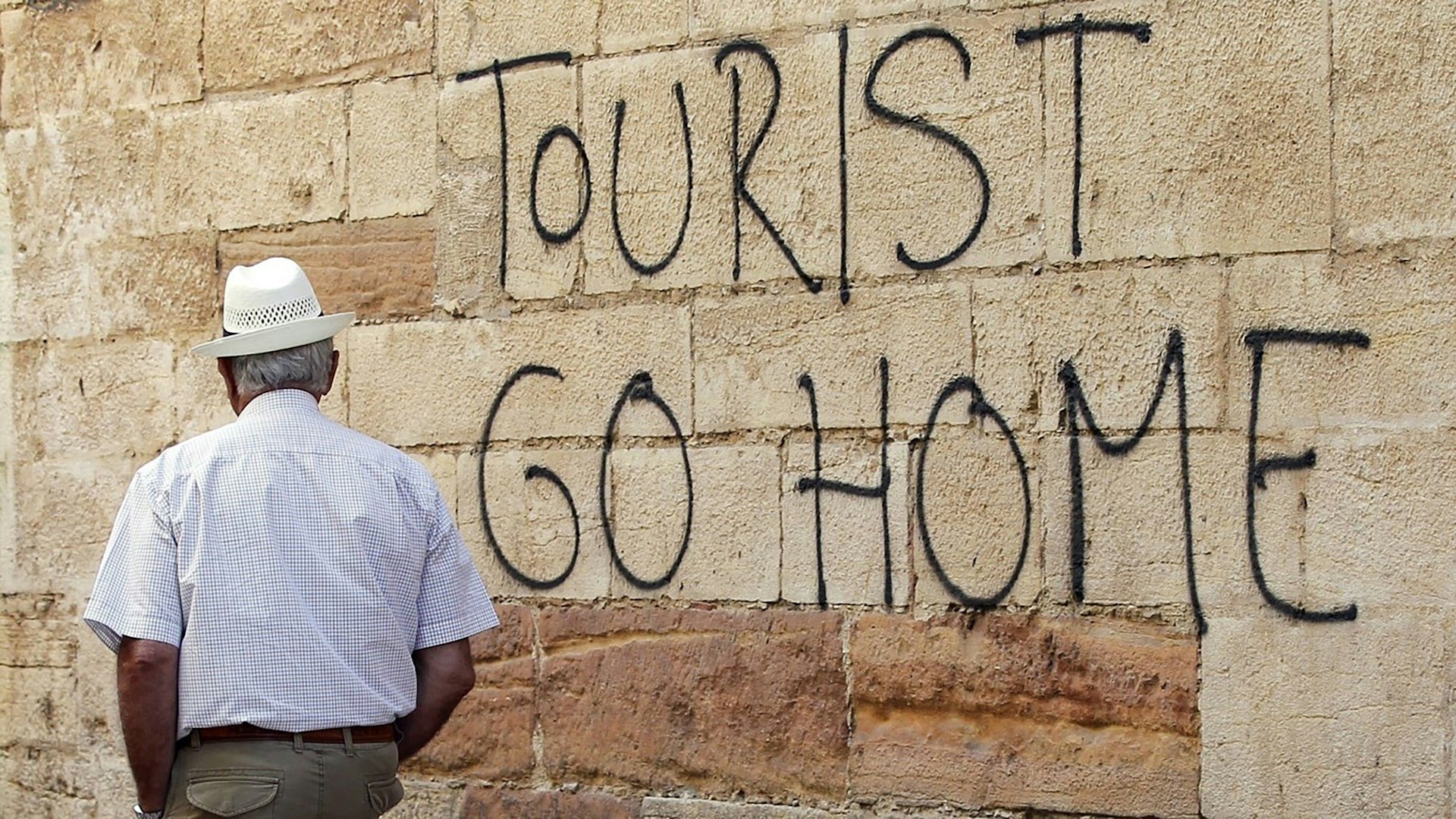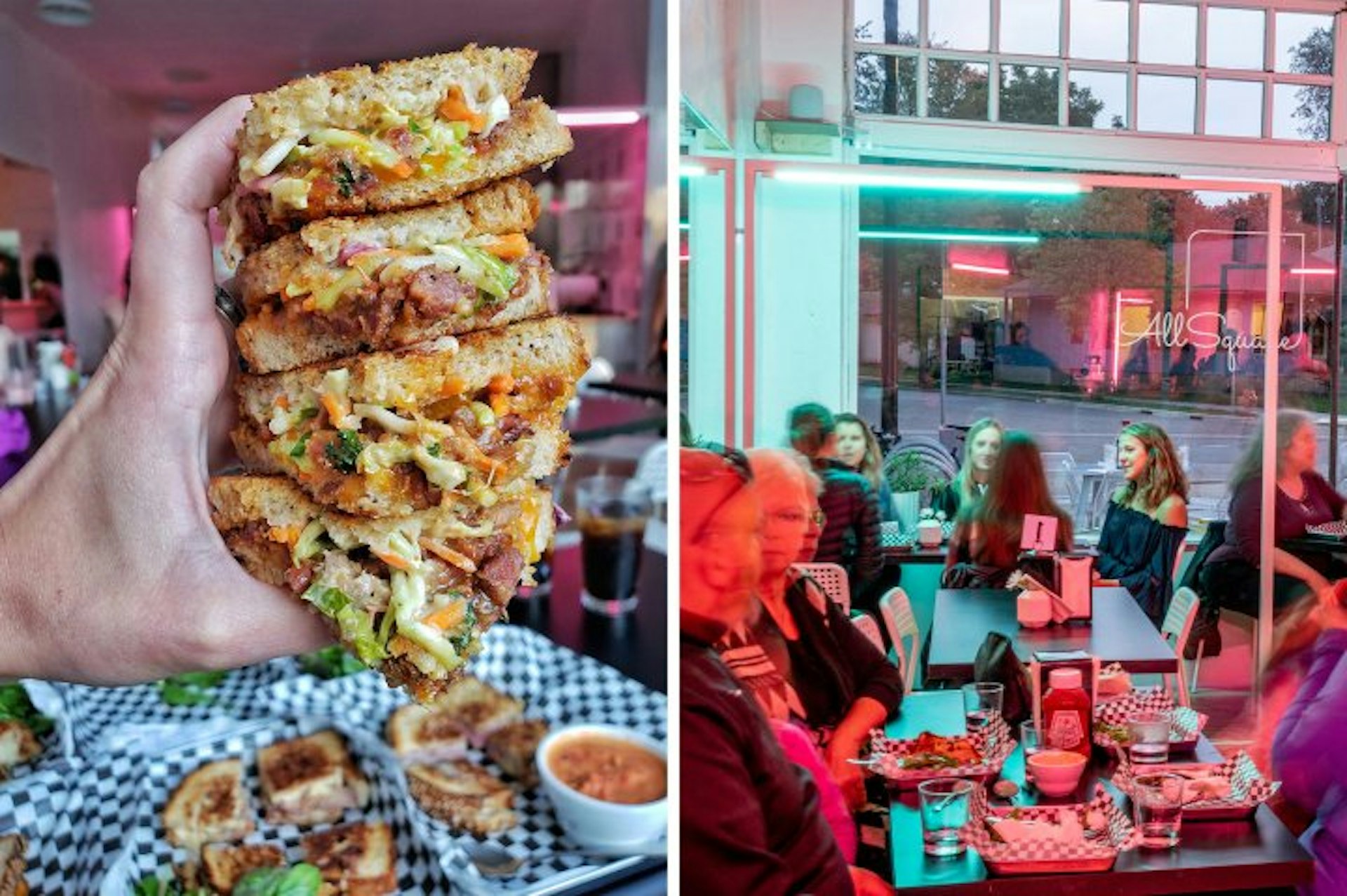May 21, 2024
Crafting Sustainable Tourism: Insights from JoAnna Haugen of Rooted
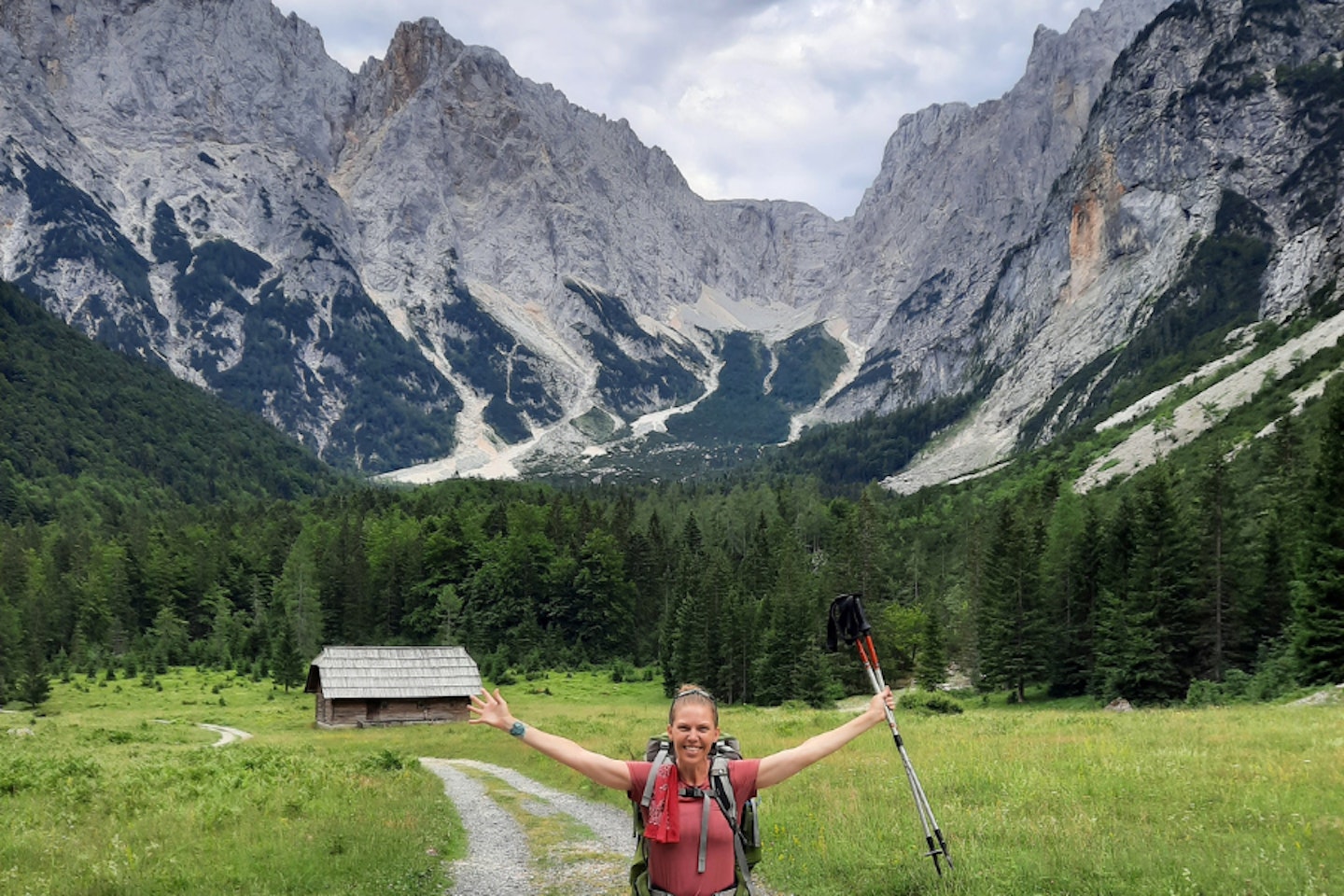
Embarking on a journey of mindful travel often begins with the realization that our adventures extend far beyond mere sightseeing. In an era where mass tourism can negatively reshape environments, communities, and the cultural fabric of destinations, JoAnna Haugen advocates for travel with a different approach. One that positions responsible, sustainable tourism at the forefront.
The founder of Rooted, a solutions platform at the intersection of sustainable tourism, storytelling, and social impact, JoAnna aims to create a paradigm shift in how we experience and narrate our travels. A global citizen with decades of industry, international living, and traveling experience, she’s witnessed firsthand the disparities between travel narratives and the realities of the places they depict. Now, her mission is to help tourism professionals decolonize travel and support sustainable development using strategic storytelling.
To practice mindful travel, it’s crucial to know how to identify unsustainable tourism practices as well as understand avenues for fostering authentic connection, respecting local communities, and nurturing sustainable development.
Here, we turned to JoAnna to chat about authenticity and sustainability in travel. From reimagining the role of tourism in community well-being to championing grassroots initiatives, JoAnna offers a roadmap for travelers and industry professionals alike to forge a new path. Through her insights, we discover that sustainable tourism is not just a buzzword, but a collective responsibility to preserve the essence of destinations, honor local voices, and forge meaningful connections that transcend borders.
Writing has been a part of JoAnna's DNA for a very long time.
Tell us about your journey. What inspired you to find Rooted?
I have a background in journalism and a degree in public relations. I've always been interested in writing and storytelling—I've kept a journal since I was in third grade. For several years, I was a full-time, consumer-facing travel writer. Some people might say it's the best job in the world. And I have to agree in so many ways. I had amazing experiences all around the world. I've met incredible people and have had the opportunity to visit places beyond my wildest imagination.
But I also realized there was a disconnect between what many places had to offer—the unique aspects of their culture, their history, and the people that make the place what it is—and what media was depicting. Often, this was not the story that was being shared with writers and therefore being communicated with travelers.
I knew there was an opportunity to do a better job of telling these stories to empower their respective communities. One that was more transparent, meaningful, and beneficial for the people who were taking on the weight of tourism.
So I moved away from being a consumer-facing travel writer and into the B2B space, where I started learning more about and from my colleagues in tourism: the service providers. I learned about their challenges, the stories they were trying to tell, and why they were struggling to tell them.
Finally, I moved into advocating for connecting the industry (destination tour operators, service providers, accommodations, and experience providers) with travelers. I work with the industry to help bridge that gap with content creators, travel media, and frontline providers—travel agents, travel advisors, and trip designers—and tell a better story.
What were some of the gaps you were seeing between the stories travel writers were sharing and the realities of the destinations they were writing about?
A lot of travel writers travel on press trips. Historically, DMOS, or destination management organizations, will pack an itinerary with all these things you need to see and places you need to eat at. It’s kind of like the greatest hits, the ‘top’ things to do.
You hit the ground running—and you run hard for three or four days. Then you're supposed to produce all this content. You have a limited perspective because you're not there for very long. A lot of these itineraries are surface-level, and a lot of DMOS aren’t creative in their thinking about how tourism can be a partner for community well-being and holistic care.
They work under a system and model that tourism is a quantifiable thing that is successful when we have a lot of visitors who have the money and the budget and will go to the top places. They’re not creatively thinking about how slow travel or active learning experiences can create more meaningful experiences for travelers and media. Or why that slower, intentional pace that allows time for reflection, learning, asking questions, and getting to know people is so important.
Not only our travelers but also our media, who don't have time to find those untold stories, have those conversations or sit in the discomfort of what's happening in global destinations. Instead, they're given the sanitized narrative, because that's the narrative that's always been there.
What does it mean to decolonize travel?
Journalists are usually people coming from some kind of privilege—being a travel writer, having a passport, and the ability to easily fly in and out of a destination. They’ll often have a surface-level experience that’s very sanitized, so the stories they produce are often very sanitized and clean as well. It stays away from conflict, complexity, and nuance.
When we talk about decolonizing travel, we mean having a conscious shift away from the exploitative paradigm, because this kind of travel we've done in the past—and that has been promoted and reinforced—has caused harm to local residents. It’s extracted resources and has centered travelers above local well-being and care. It has changed cultures and caused environmental harm.
Decolonizing means moving away from that paradigm that has been in place and has defined tourism for so long. That's especially true in places that continue to be impacted by neo-colonialism today.
We need to have a systemic understanding of tourism and travel culture through the lens of social justice. That means a fair balance in the distribution of wealth. Think about questions like: Who is benefiting financially from tourism? Who is being given opportunities? Where are the privileges that lie in the relationships between travelers and community members? It’s about breaking down this system that has centered travelers above all else.
What does decolonized travel look like?
A good example is community tourism—which prioritizes the voices and agency of local communities. It asks them how they want tourism to show up in their space, if at all.
When we talk about access to nature, it’s about minimizing resource extraction and acknowledging the past and ongoing violence used to create wilderness spaces. Access to nature is a big thing we talk about to travel. But we don't often talk about why national parks have been created.
Then there's this idea of cultural exchange. In the past, cultures have often been romanticized and commodified. They've been turned into consumable products because they've been shaped in a way that’s pleasing to travelers. Instead of recognizing the sacred traditions deeply held within generational knowledge built into culture, it becomes a transaction.
We've upheld this narrative that travel is crafted for Western needs. That it's something only available to people of privilege. Decolonizing travel means breaking all of that down and rethinking it from a community-centric experience. Centering it through a more accessible lens, one that prioritizes community holistic care and well-being, and thoughtfulness about nature, not just theory.
How do you maintain authenticity in travel?
We talk a lot about authentic experiences, and the traveler’s desire to have them. Authenticity can be super complicated because the definition held by travelers might mean that they want a unique experience. It might be what they deem to be “authentic” to a place, a one-of-a-kind experience, or the “local experience,” whatever that might be.
There have been numerous examples of travelers who seek authentic experiences, but are unhappy with the results when they have been delivered to them in a way that has been defined differently from another perspective.
I heard about a recent example in Southeast Asia, where a tour operator offered authentic experiences of the local market. Someone signed up and was very upset to discover that the local markets sold what people in Western countries might consider to be domestic animals for consumption. That's bringing a Western lens to define how animals should be treated—as pets, commodities, or products. So they left a bad review. And that was because there was a disconnect in the definition of authenticity.
The scene outside a traditional market in Vietnam. Photo by Jorge Láscar.
We see that in a variety of places. For example in Hawaii, where people want to experience an ‘authentic luau,’ or have an ‘authentic Hawaiian experience.’ But those experiences have been staged or altered in some way to meet travelers' expectations about what they're going to see and experience.
How would you define sustainable tourism and what are some practical ways travelers can engage in sustainable practices while exploring new cultures?
For me, sustainability is about embodying respect and maintaining the integrity of the natural environment—as well as the social, cultural, and economic aspects of the places we're traveling.
It's about decentering ourselves as a traveler. Showing up with respect, considering if and how local people want tourism to show up in a space, being super aware of how power dynamics have been created in the past, and how that might impact the way you interact with the space. It also means being open to whatever—not going in with preconceived notions about what you think you're going to experience. Being truly open-minded: open to learning, asking questions, being silent, and listening.
Often, that means protecting the natural environment and ensuring local people have access to financial capital. But also ensuring they benefit from access to education, local infrastructure, medical needs, and fair housing prices. That tourism is not the thing that’s destroying this access or getting in the way of it. Sustainability in a community means that tourism is a partner in ensuring the community is sustainable—with or without tourists.
How do you recommend staying accountable to sustainable tourism on an individual level?
There are a lot of different things you can do throughout the travel experience to maximize the positive impact and minimize your harm. It starts before you even book the trip. When you're thinking about going to a place, do the research, not just on the tourism websites. Look at the local news, and understand some of the deeper challenges.
In some cases, communities are very explicit about whether they want travelers. For example, right now, the Canary Islands are very vocal that they don't want travelers because local people can't even have livelihood—over-tourism is a challenge. If I was thinking of visiting the Canary Islands, looking at the news, I’d know people living there don't want me to come, even if the Tourism Board is saying please do. Always listen to the messaging that local people are sharing and respect what they’re going through, particularly after a disaster.
Graffiti reads: "Tourist go home" in the Canary Islands. Photo courtesy of Meer.
Once you’ve booked a trip, understand the unique challenges of the destination to not exacerbate them. I live in Tunisia, where we have water challenges. But the majority of travelers have no idea a lot of people have their water shut off at night because there are swimming pools and the hotels have access to water. Being a mindful traveler who did their research, you would learn this and know to take shorter showers and use water responsibly.
And of course, you can make decisions as you're traveling to intentionally book with local operators, frequent small businesses, eat in local spots, and spend money consciously. Seek out alternative storylines, so you're not perpetuating the same sanitized narrative. Give your business to other people who have been marginalized by tourist paths.
What are some alternative travel stories exciting you right now?
One of the great opportunities tourism has is to be a tool and a vehicle for travelers to support people in our community who have not necessarily benefited from tourism in the past. Travel is about so much more than just the experiences. Travelers need to eat, sleep, and get around. If they need to do all these things, why not do them while also supporting people and initiatives doing good things for communities?
One of my favorite examples: My sister used to live in Minneapolis, and there’s a cafe there called All Square. They hire and support initiatives for people who have been formerly incarcerated, have criminal records, or are tied up in the industrial prison complex. You have to eat anyway. Instead of going to McDonalds, why not go to All Square? You'll have a great meal and help some part of the community.
Photos by Sidney Schultz; Courtesy All Square.
You can also seek out experiences with deeper impacts. In London, you can take the London 101 tour—or you can book Invisible Cities or Unseen Tours. Those are tours being given by people who have been rough sleepers or have experienced homelessness in the past. They're telling you the story of London, and they're also sharing it through their perspective. So you're learning about a local challenge.
If you do a kayaking experience with Sydney by kayak, you can kayak while picking up garbage in the water and learning about the sustainability story. These are the stories that are about a place, but more than about the place. They’re about the people who are there, and learning about the community fabric on a much deeper level.
How can the tourism industry contribute to this movement?
I believe the majority of the burden sits with the tourism industry. We can create awareness, but people will take the path of least resistance. So it needs to sit on the shoulders of the industry side to create experiences and to communicate about those experiences so that sustainability and responsibility become default simply by design.
What advice would you give to local communities or artists looking to create and promote sustainable tourism experiences?
First, be aware of the traveler experience, but be authentically yourself. Let your business and let you be who you are. If you're trying to do what everybody else is doing, or you're trying to create something simply because you think it's what the traveler wants, you’re going to kill the heart of your business. There will be a mismatch between who you authentically are and what you present.
Tell your story. Don't get bogged down with words like sustainability—just share who you are, and why you do what you do. That's your unique proposition. People increasingly recognize the value of human connection in our world and they want that. You’ll attract the people who are attracted to you because of who you are.
It's also okay to set boundaries. You don't have to give yourself away to make money. If you have expectations about how travelers should interact with your experiences or participate in what you want to teach them, be upfront about that. If there are things you don't want people to take photos of, or share publicly on social media, be very clear about that.
Our stories are very valuable. Who you are deserves to be protected, not just commodified and turned into a consumable product. So be who you are authentically. Don't be afraid to put boundaries in place so you can maintain your integrity and agency and feel proud to show up in this space with the travelers who are attracted to your story.
Explore all mini-apprenticeships, and be sure to come say hey on Instagram. For more stories, tips, and new artist updates, subscribe here.
